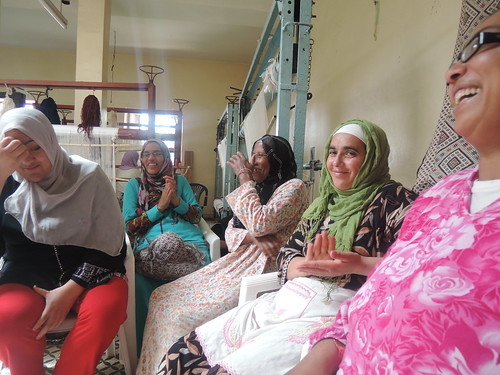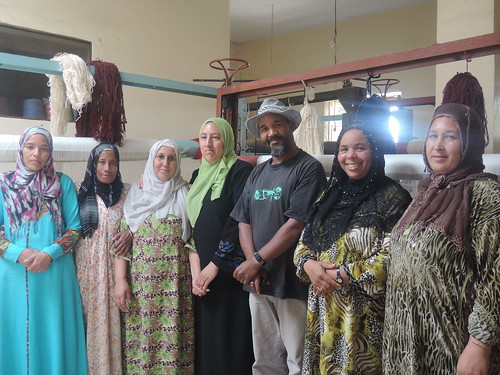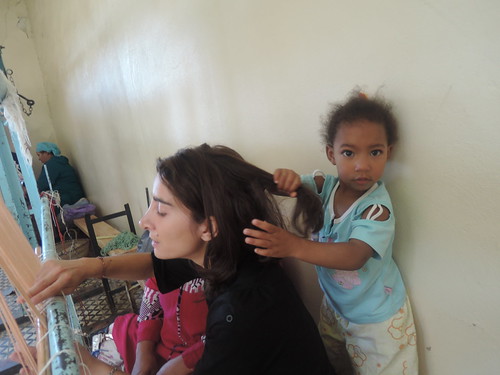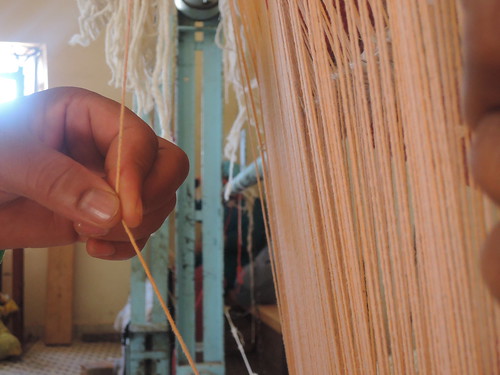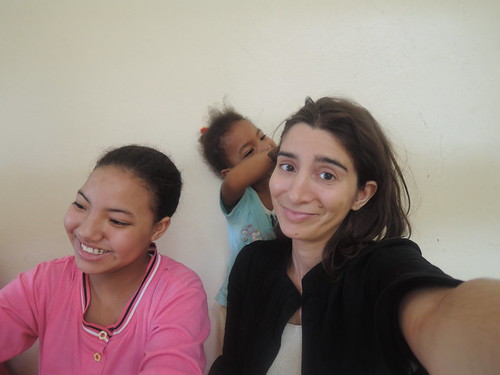“Do you know what tifsa mean”?. “It means Spring, it is a beautiful name”.
With these words the newly-elected president of Association Tifsa – Saidia Oubaala – explained to me the Amazigh word that weavers in Ain Leuh have chosen for the new non-profit they have decided to set up in order to infuse new lymph into their Amazigh heritage and raise greater awareness about the issues they face everyday as both women and artisans striving to perpetuate an art which is currently endangered and at risk of extinction.
Discretion and tact have earned Saidia great respect among the women at the cooperative, despite having joined it more recently as compared to other senior members. These qualities – and the fact that Saidia is able to read and write in both French and Arabic – made her appointment almost a natural choice. The pragmatism that the women here possess had also a role in the decision: being not married, she would also be able to dedicate greater time to the management of the Association. Applauses accompanied the election, with meskina Saidia hiding her face as if a little bit ashamed of so much attention.
And to testify to the intention of expanding the scope of the activities of the Association beyond the walls of the cultural center, the women voted for the appointment of Hassan Mestour to the Board of Directors, in the quality of treasurer. Hassan, who is currently employed as manager and translator for a nearby tourist facility, has traded a safer life in the US to make his way back to Ain Leuh – indeed, an oddity in the geography of migration and a testimony of his strong attachment to this land. Strongly committed to bring the potential of the Middle Atlas together, Hassan tirelessly encourages Ain Leuhers to look “at the wider picture” – in his own words – and to overcome shortsightedness and individualism to the benefit of the whole community.
Nor could I fail to mention the efforts that all the members put together and that made this accomplishment possible and makes me hope for a bright future ahead for Tifsa, that can count upon the expertise and determination of the weavers to keep their women’s heritage alive. As in the words of one of its most accomplished members, master weaver and trainer, Khadija: “I hope to be able to weave until I will have a last sparkle of light in my eyes”.
Finally, and in order to give a small taste to my followers of what kind of activities Association Tifsa is going to propose to its visitors, here are some of the first series of pictures that document my experiments at the loom with my rug nujum-lleil – night stars.
First day has, of course, entailed preparation of the warp that we then proceeded to mount of the loom. 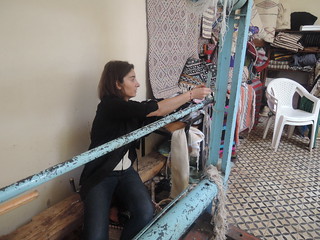
Mounting the warp has already offered some revealing insights on the symbolism associated with Amazigh weaving and its strong correlation with the life cycle and fertility: I have discovered that in my failure to correctly fix one thread to the hmaar nèra (the mechanism designed to keep the threads separated – and yes – for those who study Arabic – it is called “donkey”), I will be apparently blessed in my future with just one baby, a girl.
But more about it in my next entry, in which I will go specifically into the process and cover thoroughly all the blesses and curses that my mistakes at the loom will draw upon me. In the meantime, I will be blessed with the adorable Fatima practising her weaving skills with my hair…
Posted By Silvia Irace
Posted Jul 28th, 2014


